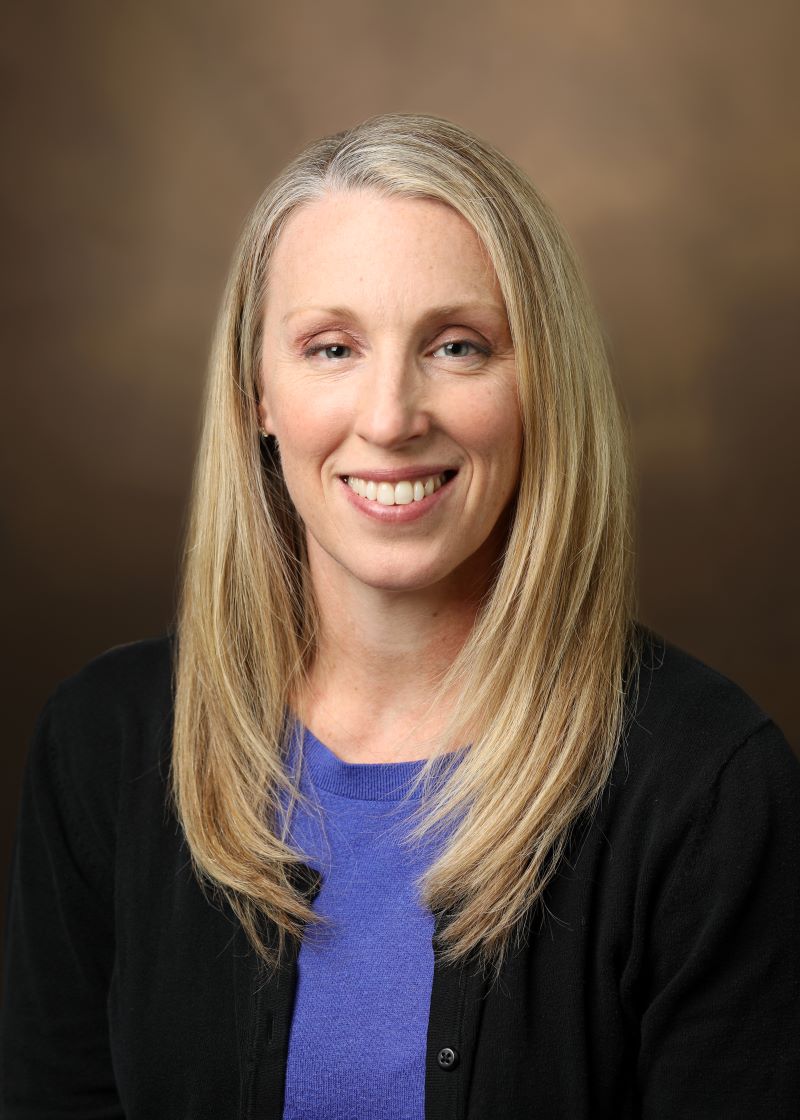Hospice and Palliative Care Fellowship Program
Launching successful careers in academic medicine, community leadership and hospice-based practices
Our vision is to build upon a legacy of excellence in caring for those with serious illness and those at the end of life.

Program Overview
The purpose of the Vanderbilt Hospice and Palliative Care Fellowship Program is to produce leaders who provide the best possible care to their patients and make important contributions to the emerging field of palliative care, to healthcare, and to their communities.
Since its inception in 2008, our interdisciplinary, multi-campus program at Vanderbilt University Medical Center and the VA Tennessee Valley Healthcare System has trained over 30 fellows who hold successful careers in academic medicine, community leadership and hospice-based practices. The program is affiliated with the Vanderbilt Center for Quality Aging and the VA Tennessee Valley Geriatric Research Education and Clinical Center (GRECC).
Our Mission
Our mission is to train physicians who are:
- Competent as palliative medicine physicians and truly care about those they serve
- Familiar with palliative care systems in academic, public, private and Veterans Affairs sectors
- Lifelong learners and teachers, evolving, strengthening, and sharing palliative medicine knowledge and skills
- Proficient in techniques of interdisciplinary leadership and quality improvement
- Catalysts for improving outcomes of palliative care in the health care systems where they work
Through training and experiences with our one-year clinical program you will learn to:
- Be proficient in-patient care as consultants and independent providers of hospice and palliative care
- Be consummate professionals
- Be proficient in the knowledge base of hospice and palliative care
- Develop effective habits of practice-based and system-based learning
- Communicate effectively with patients, families, staff and colleagues
- Be proficient in interdisciplinary leadership and quality improvement
- Be catalysts for improving outcomes of care.
Program Tracks
We offer three tracks for training with the fellowship
- Clinical track: ACGME-accredited 1-year Clinical Palliative Medicine Fellowship (pre-requisite for below)
- Research track: VA Special Fellowship in Advanced Geriatrics
- One year clinical + 2 years Advanced Research Fellowship in Aging
- One year clinical + 2 years Aging Research Fellowship through the T-32 funding process. (Includes an MCI or MPH)
- Quality Improvement track: VA Quality Scholars Fellowship Program
- One year clinical fellowship in HPM + 2 years additional Quality Scholars Program (Includes an MCI or MPH)
Our curricula are a dynamic integration of immersive small group learning sessions where fellows get to learn from a faculty expert through discussions on a weekly basis as well as from hands on experiential learning in clinical venues with coaching and mentoring by a team of inter-professional faculty experts.
The program is based on the adult learning theory principles of guided autonomy and self-awareness. The curriculum is based on ACGME-recommended competencies and Entrustable Professional Activities (EPA’s) for palliative medicine, ACGME Common Program Requirements and the ACGME measurable outcomes for hospice and palliative medicine.
Our fellowship program is accredited by the ACGME and the American Board of Hospice and Palliative Medicine. The fellowship consists of the following rotations and meets all ACGME Program requirements:
- Inpatient consultation (VUMC/VA): 6 months
- Inpatient Palliative Care Unit (VUMC): 4 weeks
- Hospice experience (personal/rental car required)
Long-term care rotation (VUMC/VA): 4 weeks
Pediatric palliative care (MCCH): 2 weeks
Ethics (VUMC): 1 week
Integrative Medicine (Osher Center): 1 week
Outpatient clinic (VUMC/VA): Weekly half-day session
Elective: 2 weeks
Vacation: 3 weeks
Electives
The Palliative Medicine Fellowship Program is able to offer our trainees a variety of elective options based on their personal learning plans. These include:
- Interventional radiology
- Integrative Health at the OSHER Center
- Ethics
- Heart Failure Clinics
- Wound Care
- Interventional Pain
Clinical training sites
- Vanderbilt University Medical Center (VUMC) provides the fellow with a consultative experience for adults in a university/tertiary care/urban environment including a variety of inpatient experiences with a well-established interdisciplinary teams. The Palliative Care (PC) Clinical Program, established in 2005, includes 9 HPM board-certified physicians, three NP’s and an experienced interdisciplinary team. Consulting on over 1,700 patients a year, the consult service is a robust clinical site for trainees to receive an interdisciplinary, in-depth exposure to palliative medicine. The service collaborates with oncology, geriatrics, critical-care, trauma and surgery. Outpatient palliative care clinics deliver care to a mix of oncology and non-cancer patients and provide fellows with a continuity experience, for symptom management and goals of care.
- The Tennessee Valley Health Care Systems, Veterans Affairs Medical Center Nashville (TVHS VAMC) palliative program and interdisciplinary palliative care team serves over 1,000 patients a year and oversees a seven-bed palliative care unit. Fellows also spend a week at the hospice unit at the Murfreesboro VA campus. The site provides the fellow a consultative experience for veterans of all ages.
- Monroe Carell Jr. Children’s Hospital at Vanderbilt provides the fellow a unique experience in comprehensive pediatric palliative care consultation under the supervision of Pediatrics Palliative Care physicians and NP and IDT. The PACT teams provide the fellow with experiences surrounding grief and bereavement and support systems for family with children.
- Alive Hospice is the oldest and largest nonprofit hospice agency in the Nashville area. Fellows train at The Residence, free-standing facility, as well at two inpatient hospice units, long-term care facilities, and at patients' homes. The VUMC Palliative Medicine fellow works together with the Alive faculty and staff as part of a strong interdisciplinary team (IDT) and participates in inpatient admission assessments, follow-up care, patient and family meetings and interdisciplinary team meetings. Fellows begin to develop the mastery of the core knowledge, attitudes and behaviors of a palliative medicine physician.
- Long Term Care settings : Fellows can work at various sites of care in collaboration with interdisciplinary teams to gain experience with consultation, facilitating transitions, and working with patients and families to make care plans. Sites include:
- The Tennessee Valley Health Care Systems (TVHS) Nashville and Murfreesboro VA Medical Center
- VUMC affiliated community based NHC chain of nursing homes and Bethany Rehabilitation Center and Nursing Home
- Vanderbilt Stallworth Rehabilitation Hospital
- M-W morning teaching (Fellows as learners then educators)
- Fellow Core Learning sessions (weekly)
- Fellows Case conference (twice monthly)
- PC Grand Rounds (monthly)
- PC Community Conference (monthly)
- Symptom management workshop (monthly)
- City-wide Palliative Care Journal Club (Monthly)
- HPM Fellowship Educational Experiences and Conferences: These learning sessions and conferences occur in 4-week blocks.
HPM Fellowship Education Calendar (Recurring 4 week / 28 day Block) Weeks Mon Tue Wed Thu Fri WEEK 1
1
8-8:30a – Teaching for multilevel Learners at VU PC Office 9CCT
2
8-8:30a – Teaching for multilevel Learners at VU PC Office 9CCT
3
8-8:30a – Teaching for multilevel Learners at VU PC Office 9CCT
12-1p – Med Division GR (Oxford House)
4
8-9a – Medicine GR (208 Light Hall)
12:30-3:30p – Fellow Learning sessions (GRECC, 4th Floor VA)
3:30-4:30p – Debriefing for Fellows
5
8-8:45a – Palliative Care Grand Rounds
VUH, 10th Fl, Rm. PRB
WEEK 2
8
8-8:30a – Teaching for multilevel Learners at VU PC Office 9CCT
9
8-8:30a – Teaching for multilevel Learners at VU PC Office 9CCT
10
8-8:30a – Teaching for multilevel Learners at VU PC Office 9CCT
11
8-9a – Medicine GR (208 Light Hall)
12:30-3:30p – Fellow Learning sessions (GRECC 4th Floor VA)
12
8-8:45a – Fellow Led Clinical Case Conference
VUH, 10th Fl., Rm. 10404 CCT
12-1p – Fellow /PD Lunch
(Variable location)
WEEK 3
15
8-8:30a – Teaching for multilevel Learners at VU PC Office 9CCT
16
8-8:30a – Teaching for multilevel Learners at VU PC Office 9CCT
17
8-8:30a – Teaching for multilevel Learners at VU PC Office 9CCT
12-1p – Med Division GR
(Oxford House)
18
8-9 Medicine GR
208 LH
12-1 PC Journal Club (TBD)
12:30-3:30p – Fellow Learning sessions (GRECC 4th Floor VA)
3:30-4:30p – Debriefing for Fellows
19
8-8:45a – Fellow Led Clinical Case Conference
VUH, 10th Fl., Rm. 10404 CCT
WEEK 4
22
8-8:30a – Teaching for multilevel Learners at VU PC Office 9CCT
3:30-5:00p – Ethics Conference 2525 west end Avenue campus
23
8-8:30a – Teaching for multilevel Learners at VU PC Office 9CCT
24
8-8:30a – Teaching for multilevel Learners at VU PC Office 9CCT
12-1p – Med Division GR (Oxford House)
25
8-9a – Medicine GR (208 Light Hall)
12:30-3:30p – Fellow Learning sessions (GRECC 4th Floor VA)
26
8-8:45a – Fellow Led Clinical Case Conference
VUH, 10th Fl., Rm. 10404 CCT
12-1p – Fellow /Faculty Lunch
(Variable location)
Optional Conferences:
- DGIM Grand Rounds: 12-1 p.m. each Wednesday
- Ethics Multidisciplinary Conference: Fourth Monday of each month
Communication Workshop: The communication workshop consists of an intensive communication workshop conducted in the Center for Experiential Learning (CELA) where our fellows practice communication skills using a standardized patient with coaching in real time. This consists of five sessions spread across the year .
V-Care: Vanderbilt Curriculum Aligned with Resilience Enhancement (V-CARE) Program: In the field of medicine, nearly half of both trainees and seasoned practitioners report some symptoms of burnout. Though not long in hours, the deeply meaningful work of palliative care can be taxing in other ways. At Vanderbilt, we feel it is critical to train not only clinically excellent providers, but balanced human beings who can grow and thrive in the richly rewarding field of palliative care. The result is our multi-layered V-CARE curriculum which consists of the following elements
- Debriefing with Psychologist (bi-Monthly)
- EAP Faculty Mentorship (Quarterly and PRN)
- Book Club
- “Whine” and Cheese
- Social Events and Gatherings (Evening at the Bluebird, Holidays, Graduation)
- Team Lunches and life events celebrations
Night at the Museum: Programs are challenged to improve palliative care education and to find ways to introduce and nurture attitudes and behaviors such as empathy, patient-centered care and holistic care. This retreat includes a unique approach, presented in an art museum, with a combination of different learning methods, including reflections on art, personal experiences of faculty and trainees, reflective trigger pieces of art, and guided and facilitated group discussions. It is reflective of the integration of Medicine with the Humanities
Quality Improvement Bootcamp: Fellows engage in individual or group QI projects that are then presented to the whole group. The objectives are:
- To understand the role of Patient Safety/Quality Improvement (PSQI) in Fellowship Training
- To identify best practices as related to PSQI
- To identify key resource for PSQI
Interviews for our Hospice and Palliative Medicine Program are held virtually each year.
Application Prerequisites:
Applicants must have completed an ACGME-accredited residency program, an AOA-approved residency program, a program with ACGME International (ACGME-I) Advanced Specialty Accreditation, or a Royal College of Physicians and Surgeons of Canada (RCPSC)-accredited or College of Family Physicians of Canada (CFPC)-accredited residency program located in Canada.
Education must be completed in an accredited residency program in child neurology, family medicine, internal medicine, pediatrics, physical medicine and rehabilitation, neurology, or radiation oncology; or, at least three clinical years in residency program in anesthesiology, emergency medicine, obstetrics and gynecology, psychiatry, radiology, or surgery.
Application requirements
- Curriculum vitae
- A personal statement describing the applicant's interest in and commitment to an academic career in palliative care
- Three letters of recommendation, one of which should be from the applicant's department head, program director, or division chief
- USMLE transcript
- Application Process
Applications are accepted through the Electronic Residency Application Services (ERAS®). The Fellowship Program participates in the National Resident Matching Program (NRMP®) Specialties Matching Service (SMS).
Our ACGME Program Code is 5404714053.
Contact info:
Sharee Burkeen
Program Manager, Clinical
Division of General Internal Medicine and Public Health
Email: sharee.k.burkeen@vumc.org
Program Leadership

Melanie Skelton, MD
Assistant Professor of Clinical Medicine
Director, Hospice and Palliative Care Fellowship Program
Sara Martin, MD
Assistant Professor of Medicine
Associate Director, Hospice and Palliative Care Fellowship Program
